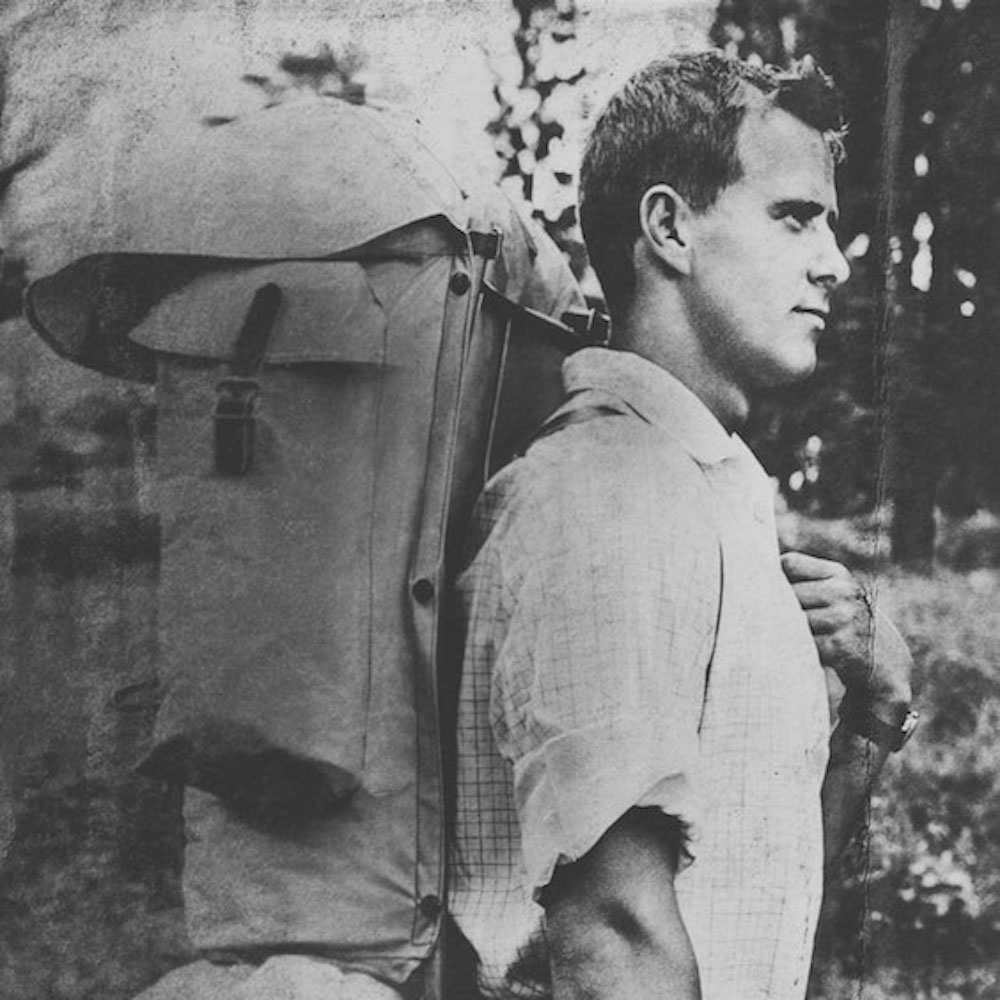For mountains without plastic
Non-profit organization Patron Plasticfree Peaks, founded in Allgäu, Germany, will be present at the Fjällräven Classic event in Germany. The organisation arranges plastic-waste collection campaigns in the mountains and has developed a sustainable product that helps avoid packaging waste. In our interview, co-founder Martin Säckl explains how they want to remove plastic from nature – and what you can do to support them.
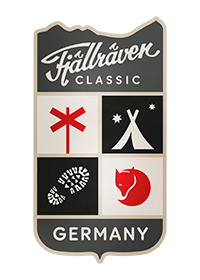
Martin Säckl and Raphael Vogler are from the city of Pfronten in the Allgäu region of Germany. They met during their university days when Martin studied Technical Business Administration for his master’s degree in Circular Economy Management and Raphael studied Product Design. With their non-profit organization Patron Plasticfree Peaks, they have built a community dedicated to one goal: freeing nature from plastic.
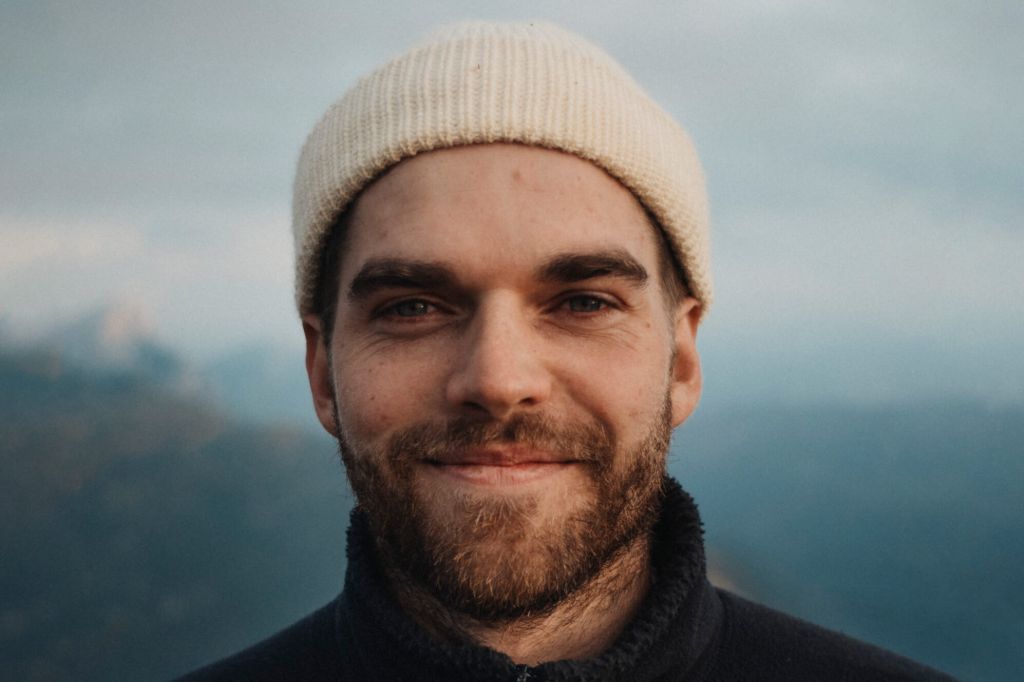
Photo: Private
Martin, what is Patron Plasticfree Peaks all about?
Martin Säckl: Raphael and I founded the organization in 2018 in the final phase of our studies. What we do today is the outcome of the idealistic ideas we had at university. At that time, we came up with the three pillars “Act, Create, Educate”. First, this means taking action and giving others the opportunity to join in. We developed CleanUP DAYS for this purpose. The “Create” part comes from the fact that we love product design. This is where our Patron Lunch Box comes in. For the “Educate” pillar, we organize school workshops on topics such as circular economy.
Where does the name of your organization come from?
We started at home in the Allgäu Alps and wanted to contribute to making them plastic-free – hence “Plasticfree Peaks”. And “patron” has the meaning of a “guardian”. It’s a symbol of the protective instinct that we humans have towards nature, that we take care of ourselves and our surroundings. Everyone feels this when you see trash out in nature and think: “This doesn't belong here!”
One of your most important activities is the CleanUP DAYS, what exactly is that?
Back when it all started we were spending an extreme amount of time outdoors fly fishing and mountain climbing and we said to ourselves: We have to do something about all the plastic trash we see out in nature. Then we started the first small events to collect trash. But we quickly realized that this was not enough and decided to start a movement. We wanted to create as large a platform as possible so everyone could access it.
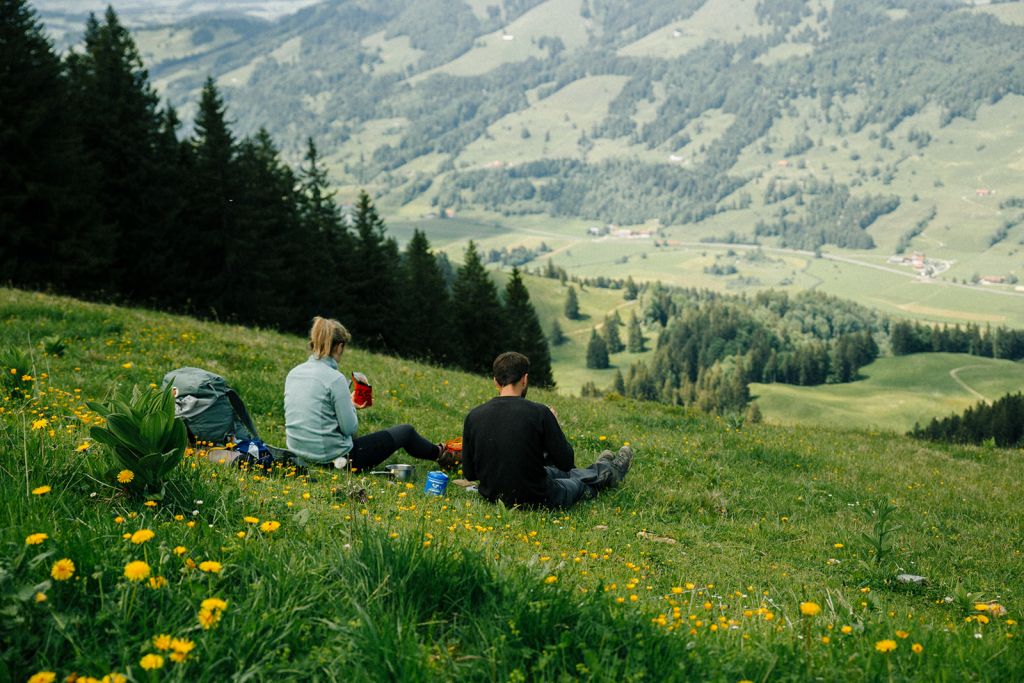
Photo: Patron Plasticfree Peaks | © Lena Everding Photo
What does this platform look like?
Raphael and I developed the “CleanUP MAP” in 2018. You can sign up on the website if you want to clean up your happy place. It was important to us that people join for intrinsic reasons, as people are especially bothered when they see trash in places they have a personal connection to. We dreamt of seeing the “P” for Patron pop up all over the map. We hoped it would take on a momentum of its own and people would post their campaign on social media or look at the map to join a campaign near them. This map has allowed us to get bigger month by month. To spread the word even further, we started our “CleanUP DAYS” in 2019, and now our “CleanUP TOUR”. This year we already have 9 big tour stops finalised, including the Black Forest, Lake Constance, Montafon in Austria, South Tyrol in Italy, and even the island of Sylt in Northern Germany.
Do you have a local focus for your activities?
The Alpine region is our main area. There’s no comparable organization to ours in the Alps, only the regional Alpine Clubs, but they don’t have trash collection as a focus. We aim to clean up the entire main chain of the Alps. And then, we aim to help keep it clean!
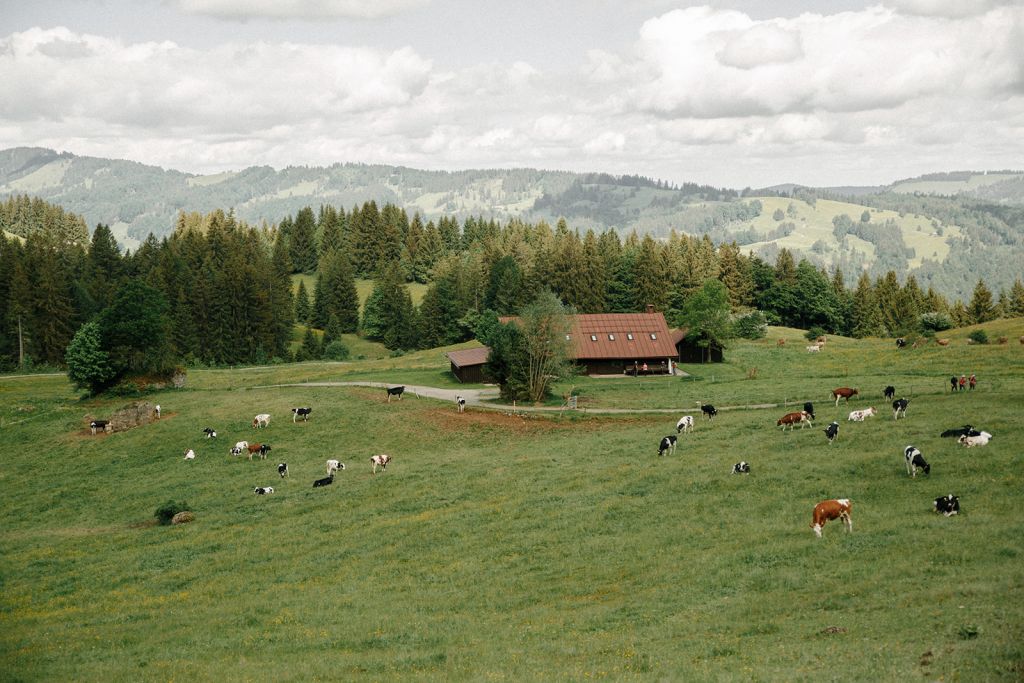
Photo: Patron Plasticfree Peaks | © Lena Everding Photo
What is plastic doing to nature and wildlife?
The problem is actually the handling of plastic; plastic in itself is not a bad material. It has great properties. For example, it is durable and very easy to shape. As long as it remains in the technical cycle, it can also be successfully recycled. The problem for nature and humans arises when plastic leaves this technical cycle and enters the biological cycle where it cannot biodegrade but remains forever, unless it is removed by humans. If not, it decomposes into microplastics. These have entered the food chain everywhere in the world, on every peak and in every ocean. Everyone has seen the pictures of dead birds or fish with stomachs full of plastic. This is also a reality here in the Allgäu.
You have also developed a product, the Patron Lunch Box. What is the idea behind it?
When we were studying, we wanted to see if we could launch a product that we would like to have ourselves. So, we came up with the idea of a stainless-steel lunch box, made in Europe, with a wooden lid that you can also use as a cutting board by strapping it to your thigh. The basic idea is to encourage people to buy their food fresh, prepare it on the mountain, and enjoy slow-food style meals – all without plastic packaging.
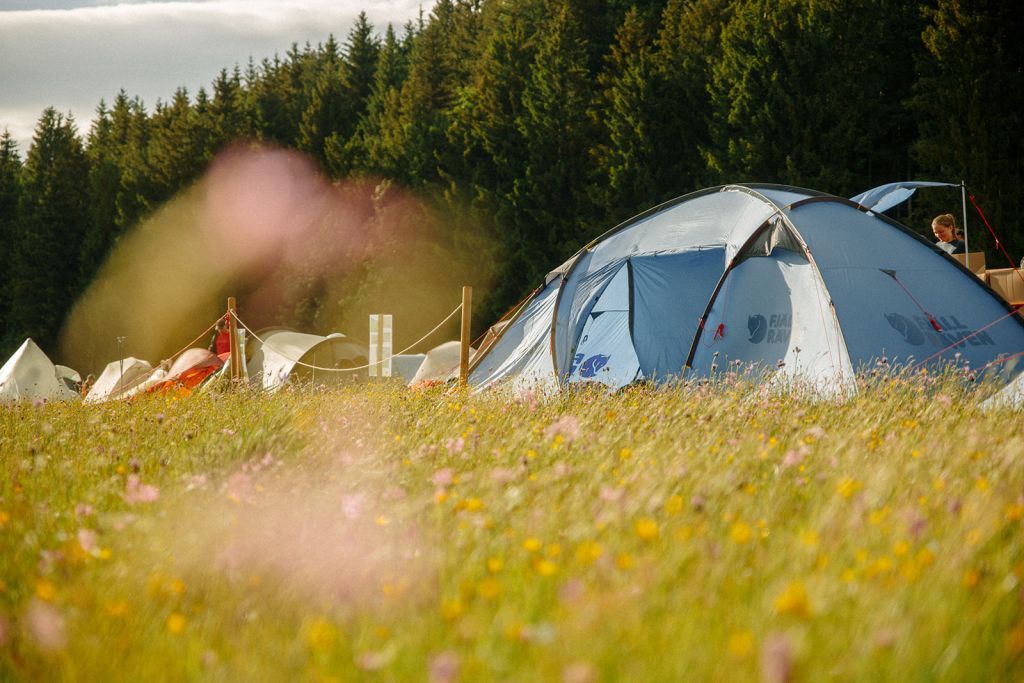
What is your mission at Fjällräven Classic Germany?
I believe that two very similar visions of sustainability are coming together here. Of course, Fjällräven is much bigger than our organization, but our common goal is to connect our two communities and make the idea of Plasticfree Peaks tangible. Every person who starts collecting plastic trash is of added value for nature. We are very happy to have partners like Fjällräven who see the problem, join in, and give us their reach.
How did the partnership with Fjällräven come about?
There were already points of contact at the 2022 Fjällräven Classic Germany. After the event, we had some great conversations. It quickly became clear that we would do something together. Fjällräven Classic is simply the perfect platform because people are outdoors together, taking care of themselves and the environment.
What are your specific plans for the 2023 Fjällräven Classic Germany?
We will talk about our history and mission at the Campfire Talks. Of course, we will also invite everyone to come to CleanUP DAYS. But the goal is to raise awareness for the slogan “Every day is clean-up day”, and of course to collect trash during the hike. All participants will receive Fjällräven Trash Bags, which have been around for a long time. We will be there as a voice for nature, so to speak, and some members of our team will take part in the hike as well. We will also take our community with us virtually to show everyone what happens at a Fjällräven Classic event.
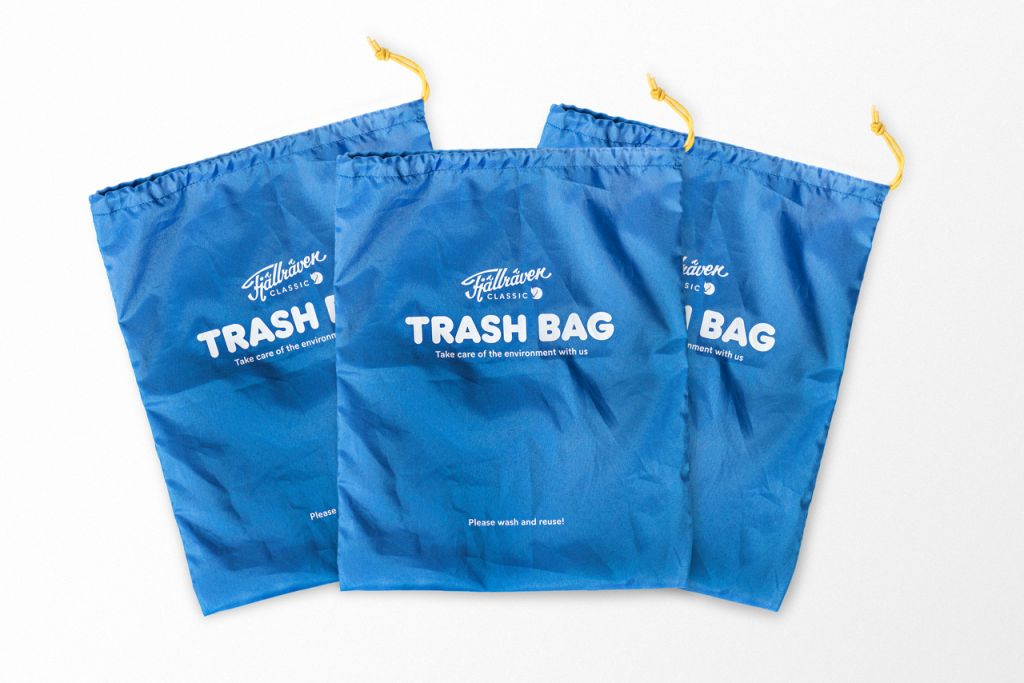
Do you have any advice for Fjällräven Classic participants on how to avoid excess plastic packaging in preparation for the event?
Yes, for sure: take a lunch box with you (laughs)! And leave food packaging at home – or take as little as possible. Put things like sunscreen in a fixed place where you can’t lose it. And be mentally prepared! Make yourself aware of why you’re participating in the event. For example, if I’m participating in a waste-collection event, I shouldn’t remain passive and wait until it’s over, but help out.
And what kind of trash should the hikers look out for during Fjällräven Classic?
Keep your eyes open, of course, and collect any trash you see in the Trash Bag. But it’s not about finding as much as possible, nor is it about finding the most shocking finds possible, such as car tires or refrigerators. It’s every little scrap that counts. On the other hand, sometimes people are disappointed that they don’t find that much. Then I always tell them: “It’s cool, it’s gratifying when nature is clean!”
What else can the participants do?
Document and share everything. It doesn’t have to be a live channel on social media, as you want to stay offline during the hike to fully enjoy it. But if you have the opportunity to document your trash collecting and later write a report of your experience on your network, it has a big impact. It’s not about a competition to see who collects the most trash. It’s more important that as many people as possible take part and spread the message.
What further plans do you have with your organization?
We want to reach 100,000 people and activate them to participate in our CleanUP DAYS. That is, of course, a big task. And we want this Patron spirit to be felt throughout the entire Alpine region, with every destination participating and every tourism association publishing information about it. It is important to us to unite guests and hosts, according to the motto: “It doesn’t matter where you come from – as soon as we go out into nature, we are all equal and responsible for it”.
We wish you all the best for your work. Thank you for the interview, Martin!
The 10 guiding ideas of Patron
Patron Plasticfree Peaks has worked with the Albrecht von Dewitz Foundation and Outdooractive to develop 10 guiding ideas that are valid for the CleanUP DAYS, trekkings like Fjällräven Classic Germany, and every day in between:
01. The journey begins
I consciously make sure to arrive in an environmentally friendly way, e.g. by bike or train.
02. Stay safe on the mountain
I pay attention to my safety and respect my limits as well as those of my group.
03. A self-evident act
It doesn’t matter if it’s mine or yours: If I find trash, I take it with me as a matter of course.
04. Together, we can achieve something
No matter if I am old or young, male or female: I am just as responsible as anyone else.
05. The right tools
In my backpack, I carry with me: a trash bag, pliers and a pair of gloves to protect myself and my equipment from any trash I find.
06. On the right path
I always stay on the designated trails and pay attention to flora and fauna, especially in protected areas, young mountain forests, or similar.
07. Stay clean
I take care of my health and avoid contact with unsanitary or toxic waste.
08. Proper waste disposal
I take trash with me and dispose of found items properly.
09. Doing good and talking about it
I document and share my finds to inspire others to take action, too. For example, in conversation or on social media – #plasticfreepeaks.
10. The journey continues
Collecting waste is just a start. I look forward to learning more and playing a part in preserving and protecting our natural environment!
For further information, please visit www.plasticfreepeaks.com
